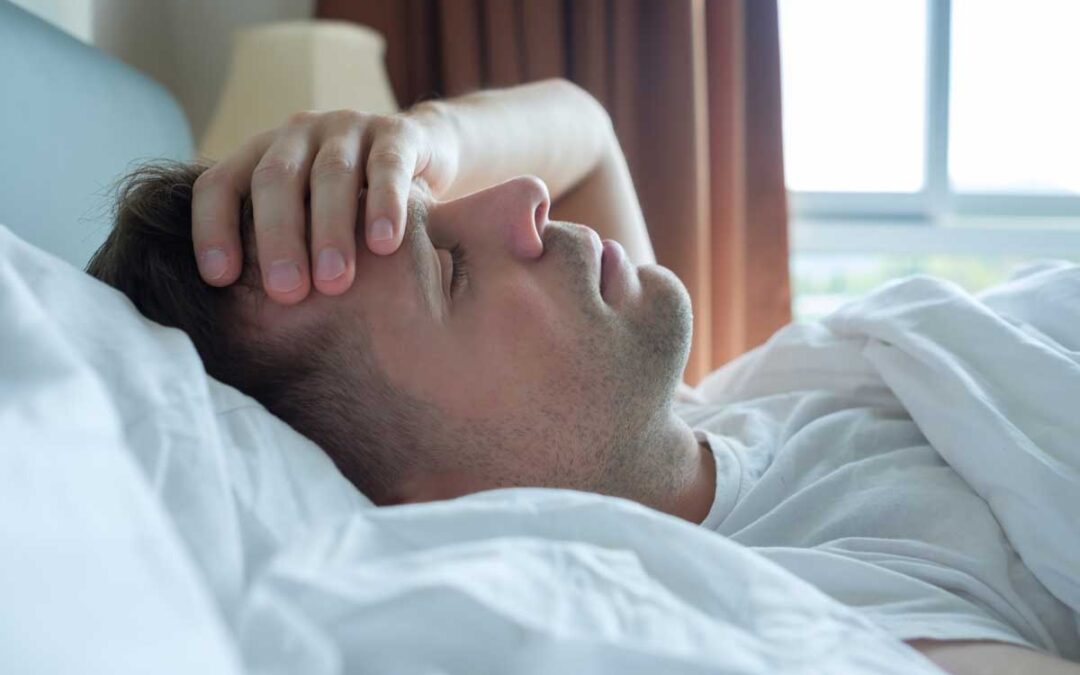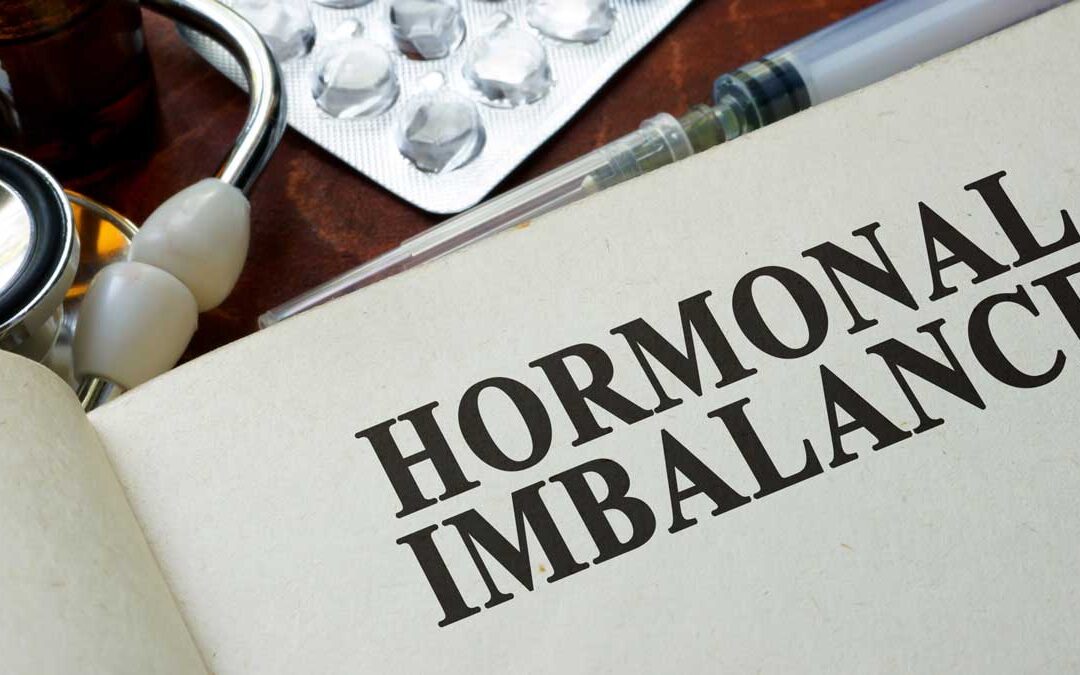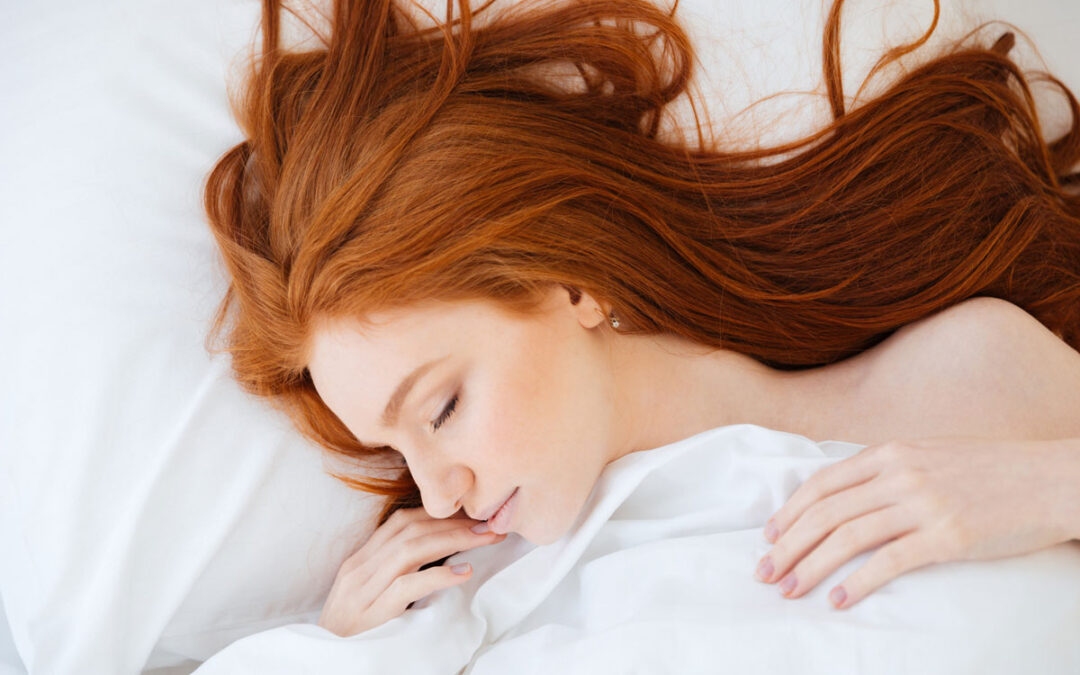
by Ingredia USA | Feb 19, 2021 | News & Press
If you’re a parent, you know the challenge of putting your children to sleep at night all too well.
It’s not easy preparing and calming your kids down for bedtime, but it’s essential that you do your best so that they can enjoy plenty of high-quality sleep. When children don’t get enough sleep, they have difficulty concentrating and controlling their emotions.
They may become irritable or hyperactive. Additionally, kids who are sleep deprived are more likely to have behavioral problems.
But don’t worry. If you want to learn how to calm kids down before bed, we’re here to help.
Set up a Routine
One of the best ways to avoid bedtime stress is by setting up a regular nightly routine for your kids. This encourages good sleep patterns.
A consistent bedtime routine of bath, story, and bed can help smaller children feel ready to snooze. For older children, you might cut out the story and replace it with a quick and quiet chat about their day before switching the lights out.
Setting regular sleeping and waking times for the whole family also helps calm children before bed. Just be sure to follow them, even on the weekend.
You can tell that your kids are getting enough sleep when they fall asleep within 15 to 30 minutes of going to bed and can wake up easily during the day.
Many kids will also ask for that ‘one last thing’, whether it’s a big hug, a drink of water, another story, or a trip to the bathroom. Do your best to involve these requests by making them part of the bedtime routine.
It’s also essential to let your child know that once they are in bed, they need to stay in bed. If they refuse, try not to react negatively but take them by the hand and walk them back to bed.
Remember, if you argue or give in to their demands, you’re just giving your kids extra attention and delaying bedtime.
Try not to give in to the ‘just this one-time’ pitfall. If you let your children stay up longer, ‘just this once’, they will try to delay it again and again, potentially undoing the bedtime routine you’ve worked on and accomplished.
Work as a Team
It’s essential to discuss and agree on a sleeping routine with your child or spouse beforehand so that you can work as a team to reduce stress before bedtime. Without any discussion, you can’t expect your kids to learn or change their behaviors.
If you’re starting a new sleep routine for your children, make them feel involved by explaining the new structure to them if they’re old enough to understand.
For younger children, use an illustrated picture chart to help them learn and understand the new routine. It should demonstrate actions like changing clothes, brushing teeth, and reading bedtime stories.
Create a Calming Environment
Creating a cozy and calming environment in the bedroom is also essential in reducing kids’ stress before sleep. Always ensure that the bedroom is dark and quiet, and the noise level throughout the house is low. The blue light coming from televisions, computer screens, mobile phones, and tablets delays sleepiness and suppresses melatonin levels.
Bright lights in the hour or so before bedtime can have the same effect on children. Always turn off devices at least one hour before bedtime and keep bright screens out of your kids’ room at night. Dim the lights an hour or so before bed for kids of preschool age and younger.
If your child doesn’t like a completely dark room, switch on a small night light or leave the hall light on with the bedroom door open. If you choose a night-light, select a dim and warm-colored globe instead of a bright, white, cool-colored lamp.
You should also check the noise inside your child’s bedroom to avoid disrupting them.
If your children tend to watch the clock, encourage your kid to move it or place it in a spot where they can’t see it from the bed.
Deal With Sleep Issues
If your child struggles with sleeping issues, such as difficulties falling asleep, waking up at night, avoiding going to bed, waking up at night, or snoring, make sure you deal with these problems.
You may also notice issues in daytime behavior. If your child seems overly tired, sleepy, or agitated during the day, it may be worth speaking to their doctor.
Make Story Time Part of the Routine
If you don’t already have storytime as part of your bedtime routine, try adding it in right away. Whether it’s independent reading or spending time together as a family, reading before bedtime is a great habit of starting early. Many children continue this habit as they grow older.
To make storytime fun, why not create a reading nook, fort, or den with cozy blankets to give them a quiet space for reading.
Now You Know How to Calm Kids Down Before Bed
Congratulations – now you know how to calm kids down before bed! Remember, there are no hard and fast rules for a bedtime routine as every child is different.
Create a routine that works well with your family and make an effort to stick with it.
Want to learn more about practicing a healthy sleeping routine? Understand the effects of sleeping disorders on your health here.

by Ingredia USA | Dec 21, 2020 | News & Press, Stress Management
A night of lost sleep is pretty common and may be due to stress or too much screen time. However, it’s not normal to have trouble falling and staying asleep most nights. If that’s the case, it may be time to see a doctor.
Sleep disorders can affect people of all ages. The American Family Physician reports that up to 50% of children will experience these issues at some point. Sleepwalking, nightmares, restless leg syndrome, and obstructive sleep apnea are just a few to mention.
The same source notes that sleep problems may lead to mood swings and daytime sleepiness. In the long run, they may affect children’s behavior and learning abilities.
Insomnia and other sleep disorders are even more common in adults. These conditions disturb your normal sleep patterns, causing difficulty breathing, fatigue, or unusual behaviors.
If left unaddressed, sleep disorders can affect your ability to function normally. You may find it difficult to wake up in the morning, stay focused at work, and think clearly.
Interested to find out more? Let’s take a closer look at the most common sleep disorders and how they affect your health.
Insomnia
Acute insomnia affects about one in four Americans each year. About one-quarter of sufferers develop chronic insomnia and other complications.
This condition makes it difficult to fall and stay asleep. Its symptoms vary from one person to another and may include:
- Frequent nighttime awakenings
- Waking up too early
- Daytime sleepiness and fatigue
- Irritability
- Tiredness
- Difficulty focusing on tasks
Watching TV late before bedtime, eating late at night, and other habits can worsen insomnia. Its symptoms may also present when you’re traveling.
In some cases, this sleep disorder may be due to depression, diabetes, or chronic pain.
Parasomnias
Has someone in your family told you that you’re walking or eating in a sleep-like state? Do you wake up crying or screaming for no obvious reason? These are potential symptoms of parasomnias.
Sleep eating, sleepwalking, night terrors, and other parasomnias cause abnormal behaviors during sleep. Although they are more common in children, they can affect adults as well.
An earlier study reports that extreme tiredness, shift work, and mental disorders are common causes of parasomnias. Substance abuse and certain diseases may contribute to these issues too.
Parasomnias can lead to injuries, risky behaviors, weight gain, fatigue, seizures, and more. They may also increase your risk of household accidents, especially if you live alone.
Restless Legs Syndrome
Restless legs syndrome is one of the most common types of sleep disorders. Its symptoms include tingling, burnings, and aches in the legs and occur mostly at night. Some people may also experience itching, creeping, crawling, and other unusual sensations.
Researchers can’t tell the exact cause of restless legs syndrome. Some say that it may be due to iron deficiency. Others believe that it may result from dopamine imbalances in the brain.
While this condition isn’t life-threatening, it can affect your health in the long run. In severe cases, it may lead to depression, fatigue, and diminished mental function.
Obstructive Sleep Apnea
About 22% of men and 17% of women suffer from obstructive sleep apnea. The risk of developing this condition increases with age. Smoking, obesity, alcohol use, and other factors may further worsen its symptoms.
This disorder causes your breathing to stop for brief periods during sleep. Its primary symptoms include:
- Nighttime sweating
- Awakening with a sore throat or dry mouth
- Loud snoring
- Daytime drowsiness and fatigue
- Mood swings
- Diminished mental focus
- Waking up choking or gasping for air
Obstructive sleep apnea affects the throat muscles. Its symptoms occur repeatedly during sleep, leading to unexplained fatigue and tiredness.
Without proper treatment, this condition may increase your risk of heart disease, stroke, and glaucoma.
Sleep Paralysis
Do you ever wake up at night and realize that you’re unable to speak or move? That’s a classic symptom of sleep paralysis. This disorder may also cause hallucinations, imagined sounds, and intense fear.
During sleep paralysis, you may feel like someone is sitting on your chest. You may also hear zapping, hissing, or humming noises, as well as roars and whispers. These symptoms may occur during sleep or as you’re waking up.
Clinical evidence reports that nearly 30% of students and more than one-third of psychiatric patients experience episodes of sleep paralysis. About 7.6% of the general population has this problem.
The exact cause of sleep paralysis is unknown.
Scientists believe that sleep deprivation, substance abuse, and mental disorders may contribute to this problem. Other sleep disorders, such as narcolepsy, play a role too.
What Can You Do About It?
Sleep disorders can be frightening at the least. Imagine waking up at night and gasping for air or feeling like someone is trying to hurt you! Not to mention the tiredness that follows a bad night’s sleep.
The best thing you can do is to reach out to a sleep doctor. In the meantime, try changing your diet and lifestyle habits.
Cutting back on sugar and trans fats is a good starting point. Fill up on slow-digesting protein for dinner and refrain from eating before bedtime. Cottage cheese, casein shakes, Greek yogurt, and other high-protein foods are all excellent choices.
Reach for a low-carb, high-protein bar, or other small snacks if you’re feeling hungry before bedtime. Avoid fatty foods and heavy meals at night. Schedule your workouts in the morning or afternoon rather than late in the evening.
Note that certain foods contain tryptophan, an amino acid that converts to melatonin in your body. Melatonin is a hormone that regulates the sleep-wake cycle, supports immune function, and protects your brain.
Beef, turkey, salmon, eggs, milk, and dairy products are all an excellent source of tryptophan. Consider drinking a cup of milk before bedtime to boost melatonin production and enjoy a good night’s sleep.
Better Sleep, Better Health
Sleep deprivation does more than just make you feel tired. It can also affect your metabolism, immune function, and heart health. Over time, it may have devastating effects on mental function and work performance.
Don’t wait until it’s too late! If left unaddressed, sleep disorders can take a toll on your health and affect how you look and feel. Contact us today to learn more about our products.

by Ingredia USA | Dec 3, 2020 | News & Press
Properties of lactoferrin
Lactoferrin is a glycoprotein naturally present in breast milk that is known for its ability to regulate the immune system. Scientific studies also report bacteriostatic (prevents multiplication of pathogens), bactericidal and antiviral effects.
A variety of studies conducted between 2007 and 2016 have already demonstrated the benefits of lactoferrin in infant nutrition, highlighting the role that this glycoprotein may play in intestinal development and resistance to infections. Its immunomodulatory abilities can be partly explained by its positive effects on intestinal flora.[1] A 2007 study concluded that lactoferrin helps protect infants from minor respiratory infections during the first months of life.
This natural protein is present in human secretions such as tears and saliva, and in greater concentrations in breast milk. Its strong affinity for iron increases absorption. It can be used to limit infections as an antimicrobial agent, stimulate the immune system, improve intestinal health, or prevent iron deficiency.
Lactoferrin as a treatment for Covid-19
Used as an antimicrobial and anti-inflammatory agent, as well as for its immunoregulatory effects, lactoferrin has serious potential for research on Covid-19 prevention.
The direct and indirect antiviral effects of lactoferrin have been demonstrated in vitro [2]. It limits microbial growth due in part to its ability to bind to iron, but lactoferrin also interacts with microbial, viral, and cellular surfaces to inhibit microbial adhesion and viral penetration of host cells.
The antiviral effects of lactoferrin are generally attributed to its clearly demonstrated ability to regulate the immune system. But it has also been shown [3] that it can directly interfere with the life cycle of many viruses. Lactoferrin acts on the binding process of adenoviruses, for example, inhibiting replication. It also interferes with infection by binding to structures in the viral envelope. We also know that lactoferrin can interfere with other viral particles in vitro, such as the feline herpes virus.
Promising trials in Covid-19 prevention and treatment with lactoferrin
Due to its multiple functions, scientists consider lactoferrin to be an ideal candidate in the fight against the SARS-CoV-2 coronavirus, the cause of Covid-19.[4]
Two promising in vitro studies, one conducted in 2011 on SARS-CoV and the other conducted in 2020 on SARS-CoV-2, have shown that lactoferrin can inhibit viral infection in the early stages and is effective against SARS-CoV-2 in the post-infection phase.[5]
The 2020 study[6] was conducted by teams at university hospitals in Rome in order to evaluate the role of oral and intranasal administration of lactoferrin in 32 Covid-19 patients with mild to moderate symptoms, as well as an asymptomatic form of the disease. The goal was to document the efficiency of the protein in improving symptoms and eliminating the virus. The study also used a control group of 32 healthy volunteers. A dose of 1 gram of liposomal apo-lactoferrin in 10 capsules per day was administered orally for 30 days, in addition to the same form administered nasally 3 times per day. All patients demonstrated improvement in every symptom except fatigue, which continued in about a third of the group. Other very promising data has emerged from these studies, such as a drop in D-dimer concentration, which is crucial in prognosis for the disease, as well as regulation of Interleukin 6 (IL-6), one of the three pro-inflammatory cytokines.
Properties of lactoferrin used in manufacturing protective masks
The Virustatic Shield is an antiviral textile developed after 10 years of research in the United Kingdom. It is used to fight airborne propagation of RNA viruses such as influenza, SARS, and Covid-19. It is not really a PPE mask, but more of a face covering like a neck warmer. Highly breathable, it can block, capture, and deactivate respiratory viruses on contact. The Virustatic Shield snood uses a hydrophilic material tested for its ability to block and retain the virus coated with Viruferrin™ – a patented substance that contains natural proteins including lactoferrin – which adds another layer of protection by binding to the virus and capturing it on the surface of the material, preventing inhalation.
The natural protein lactoferrin has been used for its virus-fighting and preventive properties for several years. Its antiviral properties are particularly promising for research on Covid-19 prevention and treatment. When associated with other agents, lactoferrin can mitigate symptoms of the illness and prevent transmission.
Contact us
——————
[1] Cuibai Fan. Effect of lactoferrin, probiotics and SM3 (milk extract enriched in sphingolipides) on immune function in mice. Life Sciences [q-bio]. AgroParisTech, 2008. English. ffNNT: 2008AGPT0054ff. ffpastel-00005539f
[2] Berlutti F, Pantanella F, Natalizi T, Frioni A, Paesano R, Polimeni A, et al. Antiviral properties of lactoferrin–a natural immunity molecule. Molecules. 2011;16(8):6992-7018. Epub 2011/08/19. doi: 10.3390/molecules16086992. PubMed PMID: 21847071; PubMed Central PMCID: PMCPMC6264778.
[3] Redwan EM, Uversky VN, El-Fakharany EM, Al-Mehdar H. Potential lactoferrin activity against pathogenic viruses. C R Biol. 2014;337(10):581-95. Epub 2014/10/06. doi: 10.1016/j.crvi.2014.08.003. PubMed PMID: 25282173.
[4] Campione, E., Cosio, T., Rosa, L., Lanna, C., Di Girolamo, S., Gaziano, R., Valenti, P., and Bianchi, L. (2020). Lactoferrin as Protective Natural Barrier of Respiratory and Intestinal Mucosa against Coronavirus Infection and Inflammation. Int J Mol Sci 21.
[5] Mirabelli, C., Wotring, J.W., Zhang, C.J., McCarty, S.M., Fursmidt, R., Frum, T., Kadambi, N.S., Amin, A.T., O’Meara, T.R., Pretto, C.D., et al. (2020). Morphological Cell Profiling of SARS-CoV-2 Infection Identifies Drug Repurposing Candidates for COVID-19. BioRxiv.
[6] Ibid.

by Ingredia USA | Nov 30, 2020 | News & Press
Did you know that over 80% of women will experience a hormonal imbalance at some point in their lives? If you are a man, you are also not getting away too easy as research shows that 1 in 4 men over the age of 30 has low levels of testosterone.
Hormones rule our entire lives. There are many types of hormones that control our behavior, characteristics, body temperature, and the ability to sleep. They are also responsible for sexual reproduction, digestion, weight loss, metabolism, and growth and development.
Unfortunately, because of the lack of knowledge about hormones, many people do not find out that they have a hormonal imbalance until it’s too late. You must know a bit about the major hormones so that you are more aware of the signs of imbalances.
Thankfully, that is exactly what we will be covering in this article. Keep on reading for a comprehensive guide to the major hormones that rule your body.
What Are Hormones?
Within your body, you have many different systems with different functions such as the cardiovascular system, nervous system, muscular system, and endocrine system.
While the nervous system creates signals by neurotransmitters and nerve impulses, the endocrine system creates signals via chemical messages, which are hormones. The endocrine system is comprised of multiple glands that secrete different hormones, all of which have their own specific function.
Some of the main bodily functions that are controlled by hormones are:
- Heart rate
- Digestion
- Sleeping and waking (melatonin)
- Energy levels
- Metabolism
- Sexual drive
- Reproduction
- Growth and development
- Hunger and satiation
- Body temperature
- Blood pressure
- Mood balancing and well-being
Now that you understand the functioning of the endocrine system, we will now cover the main types of hormones. While there are many different hormones, there are only a few dominating hormones that, if they become unbalanced, can create havoc within the endocrine system functions.
Serotonin
While many people associate serotonin as the “feel-good” hormone, it also controls much more. Serotonin affects specific functions including:
- Bone health
- Stimulates wound healing
- Controls anxiety
- Reduces depression
- Controls motor functions
- Helps with sleeping and waking
- Bowel functions
- Controls nausea
- Blood clotting
- Sexual Function
- Reduces symptoms of stress
- Creates feelings of happiness, calming, and helps with focus
Serotonin is produced in the digestive system and is formed from the amino acid Tryptophan. In other words, you can only get serotonin from your nutrition, so if you do not optimally nourish your body, you could be lacking in serotonin levels.
Serotonin Imbalance
If you are low in serotonin levels, you could experience symptoms including nausea, fatigue, depression, cognitive decline, hunger, and poor sleeping habits.
On the other hand, if you have abnormally high levels of serotonin, this could be a sign of a condition called serotonin syndrome. This could be life-threatening if left untreated and is typically caused by medications that cause an influx of serotonin.
Noradrenaline
Noradrenaline, also known as norepinephrine, is a stress hormone produced in the adrenal glands. Its main function is to provide safety responses like fight or flight. Noradrenaline, adrenaline, and dopamine are all part of the catecholamine family that controls your concentration and mood.
In conjunction with other types of hormones, such as cortisol, adrenocortical hormone, and corticotropin, noradrenaline’s main functions are:
- Increase heart rate
- Improves alertness
- Raises blood sugar levels to produce more energy
- Breaks down fat to produce more energy
- Increases blood pressure
- Memory storage
- Mood and emotional regulation
If noradrenaline levels are low, the symptoms include difficulty concentrating (ADHD symptoms), depression, and low energy. if noradrenaline levels are too high, it could lead to anxiety, panic attacks, or the sensations of euphoria.
Together, both serotonin and noradrenaline can combat mental health problems such as depression, anxiety, motivation, focus, and accomplishing new tasks.
Cortisol
Cortisol is a steroid hormone that helps your body adjust to and regulate stress levels. Cortisol is also known as the stress hormone because the levels of cortisol spike when your body is under physiological or psychological stress.
Cortisol helps the body convert carbohydrates, fats, and proteins into energy as a “fight or flight” defense response to danger. Unfortunately, if you are constantly under stress and not in actual danger, this response can lead to type 2 diabetes and insulin resistance.
If your body is producing too much cortisol, this could develop into Cushing’s disease, which has symptoms including:
- Facial swelling
- High blood pressure
- Depression
- Weight gain
- Brain fog
With constant stress, your body could eventually stop producing cortisol which leads to adrenal fatigue. This leads to depression, little to no energy, headaches, and weight gain.
If your body is not producing enough cortisol, it could lead to adrenal insufficiency (AI). The symptoms of AI include low blood sugar, painful joints, weight loss, and dizziness.
Melatonin
Melatonin is a hormone that your brain produces in response to darkness, as it plays a primary role in sleep regulation. Its main function is to control your circadian rhythm and help you to have an internal sleeping schedule.
Unfortunately, melatonin production declines as we age, which is why 40% of the older population suffers from insomnia. In addition to that, poor bedtime routines can also affect your body’s ability to produce melatonin. Poor habits such as using electronics with bright lights can affect your brain’s signaling to produce more melatonin, causing you to have a poor night’s sleep.
Melatonin affects more than your ability to sleep, as it can also help with digestion, reduces oxidative stress (antioxidant), improves eyesight, improves cognitive function, and improves cellular function.
A 2004 study discovered that melatonin can also be used to therapeutically treat and prevent certain types of cancers such as breast, colorectal, and prostate cancer. It is also widely used in nursing homes to reduce the sundowning effects in patients with Alzheimer’s disease.
There are some natural ways to boost your melatonin, the most important would be taking a melatonin supplement until you can create a normal sleeping pattern.
You can also consume more foods that contain melatonin including:
- Oranges
- Pineapple
- Barley
- Rice
- Oats
- Sweet potato
- Tomatoes
- Corn
By ensuring your melatonin levels are adequate, you are not only able to sleep better, but you will also improve your heart health, boost immunity, reduce acid reflux, and improve your digestive health.
Learn More About the Different Types of Hormones
It is essential that you understand the different types of hormones so that you can ensure you are living a healthy lifestyle and taking proper care of your body. If you neglect your hormonal health, you could develop conditions such as diabetes, thyroid disorders, Cushing syndrome, and other health problems.
It is important to consult with your physician if you feel you have a hormonal imbalance, or before starting any new health program.To learn more about hormonal health, feel free to contact us with any questions or inquiries.

by Ingredia USA | Nov 17, 2020 | News & Press
If you have been having a hard time falling asleep or staying asleep, you are not alone. According to research, over 60 million Americans experience insomnia every single year.
To make matters worse, having insomnia increases your chances of dying in a car accident by 67%! It also affects your mood, increases anxiety, depression, your chances of having a stroke, and obesity.
Considering we spend about one-third of our lifetimes snoozing, we must learn how to optimize our sleep so that we can feel well-rested and take on our daily tasks.
This is where it becomes important to know the relationship between melatonin and sleep.
Keep reading this comprehensive guide on melatonin for sleep, so you can have the energy you need to live the life that you desire!
What is Melatonin?
Melatonin is a hormone that is naturally produced in your body, both in your gut and in your pineal gland. While researchers spent numerous years studying melatonin from the pineal gland, it was only recently when studies came out about the difference of melatonin in the gut.
According to these studies, gastrointestinal melatonin produces over 400 times more melatonin than found in the pineal gland. This also means that if you do not have a properly functioning digestive system, you may be suffering from low levels of melatonin.
Melatonin is also an immunomodulator, which means that it is needed for a healthy immune system function. Melatonin is also a powerful antioxidant, which supports proper eyesight, and reduces the risks of developing certain types of cancers such as breast, colorectal, and prostate cancers.
It also supports your neurological system, improves your digestive health, temperature, blood pressure, and improves your cognitive function. Your brain also signals for the release of melatonin when it receives signals from other hormones that it is time to eat.
Melatonin and Sleep
Once it becomes darker, your brain signals for the release of melatonin which will help you to sleep; this is also known as your circadian rhythm. Your circadian rhythm is your built-in alarm clock for your daily sleeping and waking schedules that is based on a 24 hour period. Instinctively, we are designed to sleep during the night and be awake for the other 16 hours of the day.
Once your brain releases melatonin, it begins to bind to brain receptors to slow down nerve activity and slow down the production of dopamine, which is responsible for staying awake.
Unfortunately, due to our current digital and fast-paced lifestyle, many people suffer from low melatonin levels because of their poor bedtime routines.
Exposure to light inhibits your brain from sending the signal to release melatonin, as it tricks the brain into thinking it is still daytime. If you have a bad habit of staying up late on your digital devices, you may be doing more harm to your health than you may think.
1. Corrects Jet Lag
No one likes the experience of jet lag. But if you love traveling, it comes with the territory. Jet lag can last up to six days, which means that if you have a shorter vacation, you may be too tired to fully enjoy it.
Thankfully, melatonin can help to correct your sleeping schedule so you do not have to suffer as long. By using the correct steps to help your body produce more melatonin, you can correct your sleeping schedule in as little as two to three days.
2. Adjusts Poor Sleeping Habits
An ideal bedtime routine for natural melatonin production includes unwinding with quiet time, with no electronics or lights for at least one hour before bed. Unfortunately, with our busy lifestyles, not many people can follow this ideal routine, which causes our body to lack sufficient melatonin for a good night’s sleep.
By ensuring you have a good bedtime routine, you are helping your body to wind down and prepare for a restful sleep, so that your lifestyle does not have to affect your health.
3. Increases Growth Hormone in Men
Human growth hormone (HGH) is an essential hormone for men’s health and well-being. Not only will it help with exercise performance, sex drive, and muscle building, but it also helps to reduce the chances of diseases, aids in recovery, and lowers body fat.
According to research, the more melatonin your body produces, the more it helps the body to stimulate and release more HGH. It can also help to reduce the release of other hormones that inhibit melatonin production.
4. Reduces Tinnitus
Sleeping with a bit of noise in the background is one thing, but if that noise is coming from inside your ears, there is no way to escape it. Tinnitus is illustrated by a constant ringing in the ears and can be even louder when the room is silent.
Unfortunately, tinnitus and insomnia are closely linked, as insomnia can worsen the stressful and emotional response to tinnitus, which prevents you from restful sleeping in the first place.
Thankfully, melatonin comes to the rescue again by lessening the symptoms of tinnitus and assists your body in having a better sleep.
5. Promotes Restful Sleep
It is great when you can easily fall asleep, but staying asleep is a major problem for most people. The more you wake up during the night, the more you are interrupting your sleeping cycle, which affects your ability to stay in deep REM (rapid eye movement) sleep.
During REM sleep your body is repairing, restoring, and rejuvenating. Melatonin can help you to fall asleep and stay asleep, which means that your body will be able to soak up the benefits of a few full sleeping cycles.
Learn More About Melatonin and Sleep
Understanding the relationship between melatonin and sleep is a major lifesaver if you find it hard to have a restful sleep.
To ensure your body is producing enough melatonin, focus on eating whole, clean foods, and make sure you are getting enough time outside for optimal well-being.To learn more about melatonin, feel free to contact us at any time.

by Ingredia USA | Nov 4, 2020 | News & Press
Did you know that there are more than eighty types of sleep disorders that can impact your ability to get a full, well-rested night’s sleep?
Sleep is the most essential part of your daily routine. The average person will spend 1/3 of their life sleeping. However, if you’re struggling to get enough quality sleep, it can have a detrimental impact on your physical health and emotional health.
By understanding the different phases of sleep, you can begin to learn how your health is affected by not getting enough sleep in each phase. That’s why today, we’ve created this complete guide to help you get a better understanding of the different stages of sleep. Keep reading it to learn more!
Awake
Stage 0 is the time that you’re awake. You will spend time awake in bed before you fall asleep and right after you fall asleep. Stage 0 will also include the brief times that you awaken during the night. It is completely normal for people with healthy sleep patterns to awaken during the night briefly.
Light Sleep
Light sleep is initiated when you begin entering your sleep cycle. Also, light sleep is the transitioning phase that your body uses to move it into deeper sleep stages. This stage of sleep is referred to as paradoxical sleep.
During the light sleep phase, your muscles will relax. Also, your breathing will begin to slow down, and your heart rate will decrease.
It’s also very easy for you to wake up during this stage of sleep. Many people who experience muscle jerking, that results in them waking up, experience the muscle jerking during this phase of sleep.
Deep Sleep
The Deep Sleep stage of sleeping is the most refreshing and rejuvenating stage of sleep. This is because, during this stage of sleep, your body can focus on removing waste from your brain, repairing cells, and encouraging muscle growth.
During the stage of sleep, it won’t be easy to wake an individual. Also, if an individual is woken during the stage of sleep, they will appear groggy or disoriented.
Since your body is focused on repairing and restoring itself during this sleep stage, your body will also increase your muscles’ blood flow. Hormones, such as growth hormones, are released to help repair damaged areas of the body. Since your brain is focused on flushing out waste, slow brain waves will be released from your brain.
REM Sleep
Deep sleep and REM sleep are two different stages of sleep cycles. REM sleep is responsible for allowing your body to re-energize the brain.
During the REM cycle, people will have dreams. The brain is also responsible for focusing on learning, memory consolidation, as well as problem-solving. However, the older that a person gets, the less time that they will spend in the REM sleep cycle.
REM cycle will usually happen about 90 minutes after you fall asleep. The first period that your body spends in REM sleep will last 90 minutes. Typically, a person will go into four REM stages in one night, with the last REM in the cycle lasting up to 1 hour.
What Happens if You Don’t Get Enough Sleep?
Not getting enough sleep every night is incredibly dangerous. Some of the physical consequences of not getting enough sleep include a lowered immune system, a decreased sex drive, an increase in weight gain. Not getting enough sleep also leads to an increased risk of developing certain chronic illnesses, such as diabetes, cancer, and chronic fatigue.
Let’s take a closer look at what happens if you don’t get enough sleep every night:
Poor Heart Health
Several studies have found that if you get less than five hours of sleep per night, it greatly increases your risk of developing certain coronary health diseases. Your risk of having a stroke goes up significantly without the proper amount of sleep.
Impairment to Central Nervous System
As mentioned above, sleep is necessary to keep your body functioning properly. Chronic insomnia, or other causes of sleep deprivation, will disrupt your body’s ability to process and send vital information.
When you’re sleeping, your brain will develop pathways inside of itself to help it keep track of new information that it’s learning. Since your brain will be exhausted from the lack of sleep, your brain will prioritize the development of new pathways. As a result, this will make it more difficult for you to concentrate on tasks, decrease your coordination abilities, and make it difficult for you to remember new information.
Also, your emotional and mental state will be negatively impacted by sleep deprivation. You’ll likely be more susceptible to experiencing mood swings, as well as noticing difficulty making decisions. You could also experience anxiety, suicidal thoughts, and pulse in behaviors, depression, and paranoia when you deprive your body of sleep.
If you deprive your body of sleep for too long, you will begin to microsleep during the day. Microsleeps occur when you fall asleep for a few seconds and don’t realize it. Micro-sleeping is extremely dangerous, as it leaves you out of control of your body. This is especially dangerous while you’re driving or operating heavy machinery.
Endocrine System Depression
The endocrine system in your body is responsible for the production of hormones. For men, they begin to produce testosterone during the REM cycle of their sleep. Waking up in the middle of the night will severely impact your body’s ability to produce enough hormones.
In children and young adults, your body focuses on producing and releasing the growth hormone. The growth hormone, or HGH, is responsible for helping the body repair cells, tissues, and increasing the development of muscular tissue.
Understanding the Importance of the Different Phases of Sleep
By understanding all of the different phases of sleep, you’ll better know how your health is negatively impacted when you don’t get enough sleep every night. You’ll also understand the importance of each phase of sleep and how it benefits your body’s health.Are you looking to improve the quality of sleep that you’re getting? We’re here to help you! Click here to learn more today.






